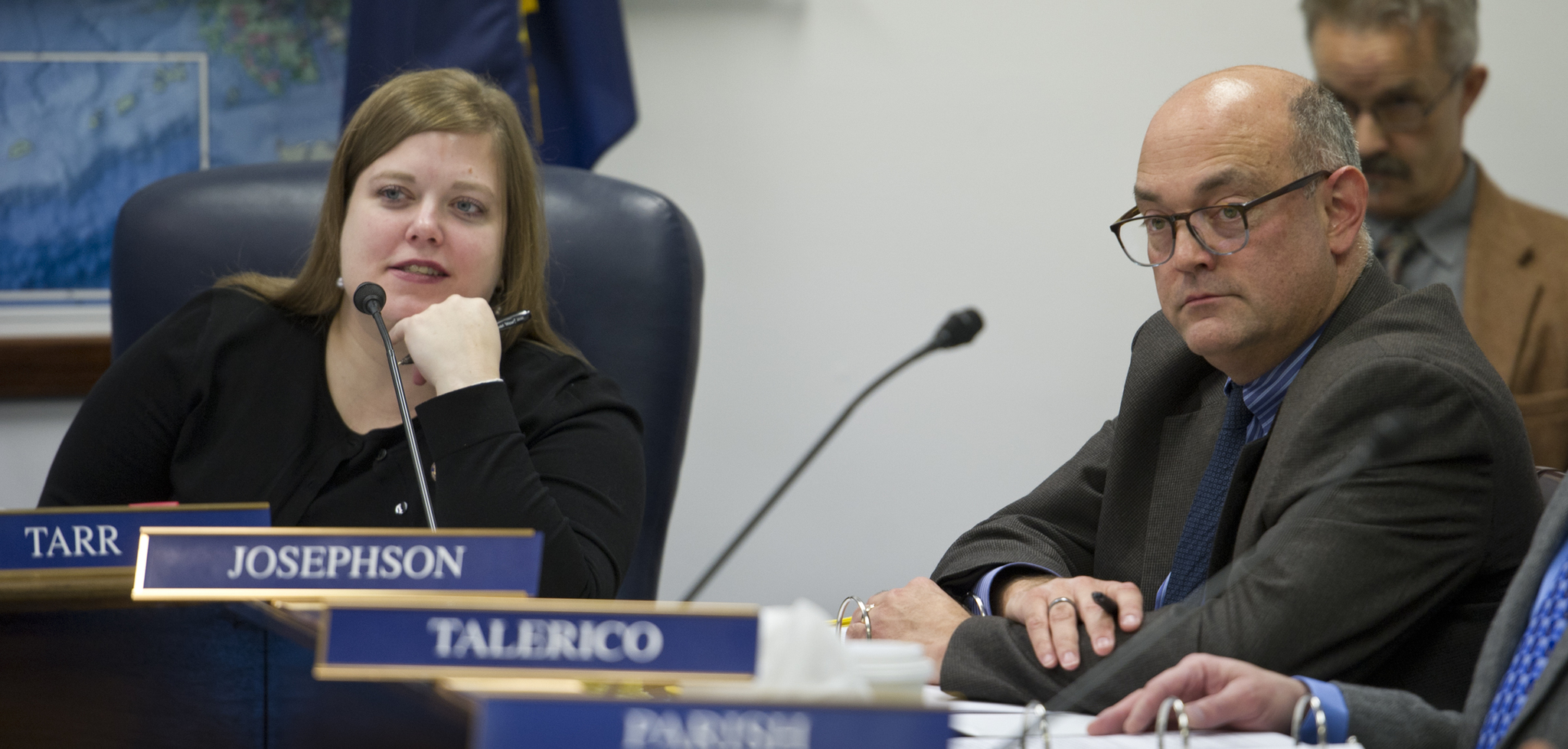An issue that sank plans for a budget fix in 2016 will soon resurface in the Alaska Legislature.
A bill addressing North Slope oil and gas tax credits — the state’s subsidy of drilling in the Arctic — is expected to surface next month in the House Resources Committee.
“I think that there will be a bill within about two weeks, and it will be a central focus of the committee for some time,” said Rep. Andy Josephson, D-Anchorage and co-chairman of the committee.
In 2016, the Legislature passed reforms to the tax credit system by a single vote in the House, but the victory was a hollow one for those who hoped it would lead to a compromise on Alaska’s $3 billion budget deficit.
Shortly after the credit reform bill passed, two Democratic members of the House Finance Committee voted against a plan to slash the deficit by using some of the earnings of the Alaska Permanent Fund. That plan failed in the finance committee, 5-6, and never came to a vote of the full House. It had already passed the Senate.
At the time, Rep. Scott Kawasaki, D-Fairbanks, and Rep. David Guttenberg, D-Fairbanks, said they couldn’t support spending a portion of the Permanent Fund because too much of that money would go to oil and gas companies.
“The benefit of giving those credits is small,” Guttenberg said June 17.
As the tax credit issue returns, it is again expected to play a key role in any budget deal this year.
“That’s a huge spending issue for us, and we know we need some sustainable — some cuts there,” said Rep. Paul Seaton, R-Homer and co-chairman of the House Finance Committee, in a press conference last week.
Last year, Seaton and Rep. Tammie Wilson, R-North Pole, proposed an alternative system of tax credits. Their proposal passed the House but was rejected by the Senate.
Now, Seaton is in a prominent role with the coalition House Majority, and lawmakers who voted against last year’s reforms are alongside him in the majority.
While the House has changed significantly since last year, the Senate hasn’t, and any proposal to alter the subsidy will face a challenge. Even in the House, the new House Republican minority has said that preserving the existing subsidy is a priority.
“It’s true that the other body has not changed significantly. … However, I think that we need to re-hear these arguments about stability and see whether the Senate has changed its position,” Josephson said.
There’s some reason to think the Senate might be open to movement.
“No function or category of spending is beyond evaluation, and that includes oil tax credits,” said Senate Majority Leader Peter Micciche, R-Soldotna, in a press conference last week.
“It’s certainly something we have to evaluate, especially considering the makeup of the House,” Micciche added.
Sen. Gary Stevens, R-Kodiak, said in a Senate Labor and Commerce Committee meeting last week that he believes “we are about to make a decision on tax credits, I think.”
Under the state’s previous system of subsidies, oil and gas producers earned more than $1 billion in tax credits — money now owed by the state to those companies.
There’s a catch: The state only has to pay a few tens of millions of dollars on that debt each year. It could pay more, but Gov. Bill Walker has vetoed extra payments every time the issue has come up.
Josephson believes that with proper reforms, Walker might be convinced to put down his veto pen, something the Senate — judging by previous actions — wants.
“That may sway some folks, and maybe some compromise could be reached to fund more than the governor otherwise would,” Josephson said.
Long weeks of debate and analysis lay ahead if the Legislature is to find the “sweet spot,” as Josephson called it.
At the same time, lawmakers will be discussing new taxes, spending cuts and spending from the earnings of the Permanent Fund. The end goal — as it was last year — is to find a compromise that fits all of the pieces.
“There’s an endgame, everyone knows that. It usually comes in April. There will have to be some compromise,” Josephson said. “All these pieces will be discussed together, but we think the tax credits has to be a component of the endgame.”


